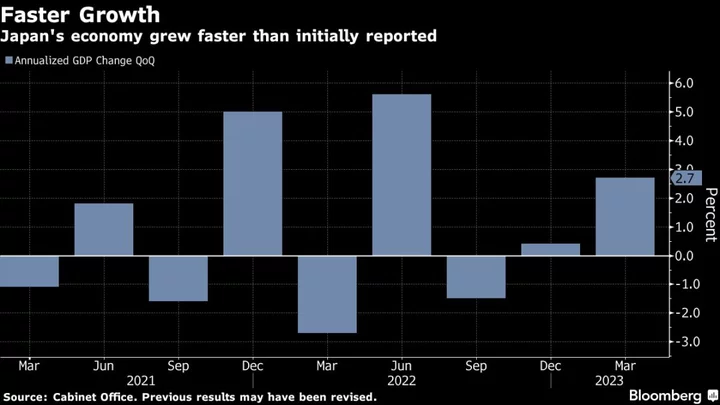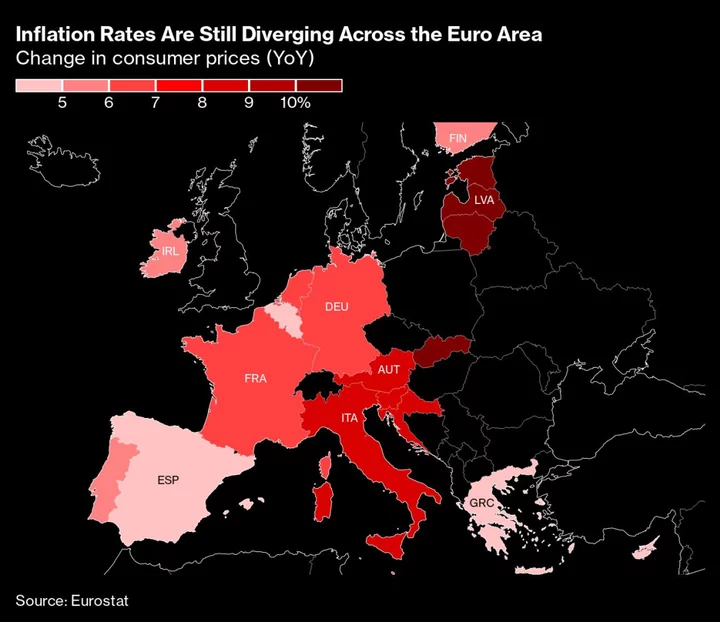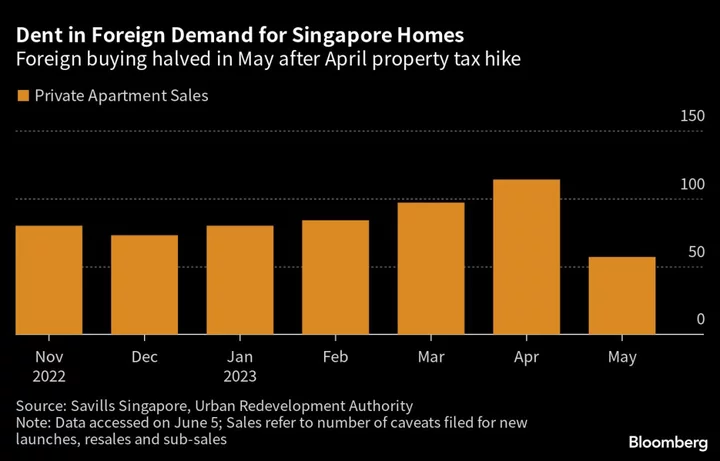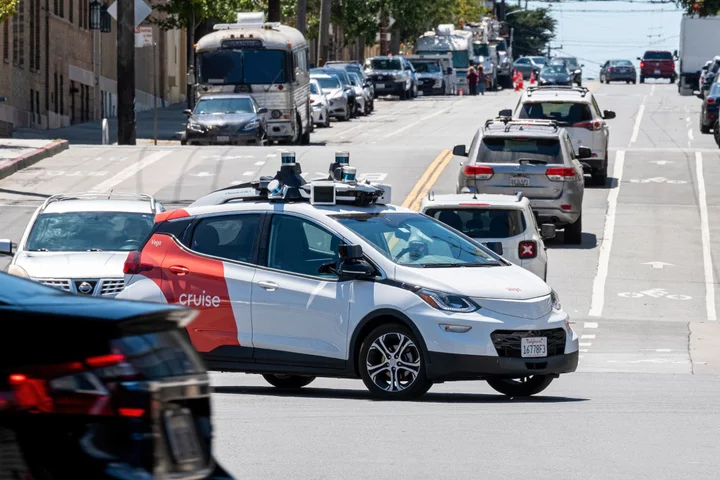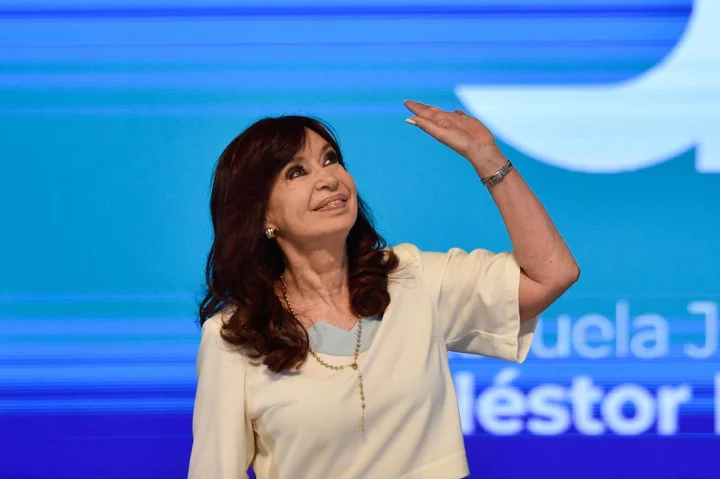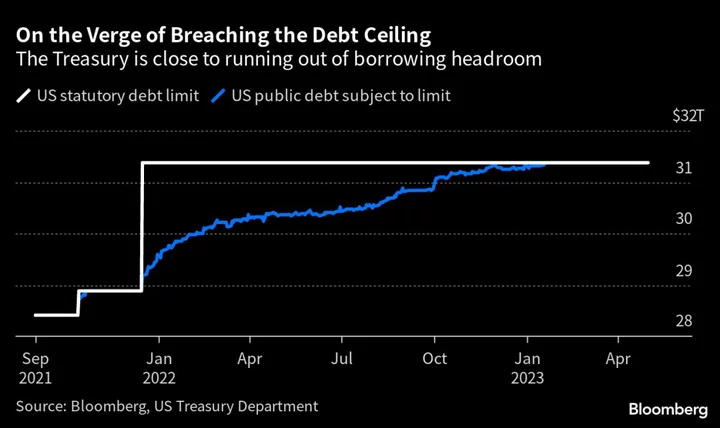Japan’s economy expanded at a faster pace than initially estimated as businesses ramped up spending, a largely positive development for Prime Minister Fumio Kishida amid ongoing speculation he may call an early election.
Gross domestic product grew at an annualized 2.7% in the first quarter from the previous three months, revised figures from the Cabinet Office showed Thursday. That beat both an initial reading of 1.6% and the 1.9% expansion forecast by economists. The revised data also showed that Japan avoided a technical recession at the end of last year.
The stronger corporate investment suggested sentiment among companies remained resilient despite concerns over a slowdown in the global economy. In less positive news, the growth figures gained a flattering boost from swelling inventories that point to demand not keeping up with production, a cause for concern going ahead. Consumer spending also proved a touch softer than first estimated.
The stronger-than-expected growth comes alongside stocks hovering near their highest levels in more than three decades, factors that Kishida might cite if he decides to call an early poll. The election chatter may keep the Bank of Japan from rocking the boat with adjustments. The central bank meets next week to decide on policy.
“Kishida will look at the current economic situation rather than past performance. Looking at Japan’s recent economy, the recovery is gaining momentum,” said Shinichiro Kobayashi, principal economist at Mitsubishi UFJ Research and Consulting. “Kishida may consider a snap election in a way that makes good use of the currently growing sense of hope.”
The approval rate for Kishida’s cabinet stood at 46.7% according to a JNN poll this week, well above levels earlier in the year after a generally well received Group of Seven summit last month.
The world’s third largest economy is playing catch-up with its overseas peers after the government ended its Covid-19 restrictions and foreign tourists return in droves. The latest GDP reading also eases concerns that a slowing global economy may weigh on Japan Inc.’s sentiment to invest.
What Bloomberg Economics Says...
“Looking ahead, we expect growth to slow in 2Q23. Weaker external demand will likely drag on exports and dent business investment. Inflation and falling real incomes will also probably cap the recovery in consumer spending.”
— Taro Kimura, economist
For the full report, click here
Japan’s real economic output is still below levels seen at the end of the third quarter of 2019, just before Japan raised its sales tax ahead of the start of the global pandemic. Private consumption and corporate spending also remained below that size.
Economist Yoshimasa Maruyama at SMBC Nikko Securities was more skeptical that Thursday’s numbers were positive for Kishida, given the amount that inventories contributed to the revision.
“I don’t think the growth rate will affect the timing of an election,” he said. “Kishida doesn’t seem to be in a rush and will likely call one in the fall to get it done before the budget is completed at the end of the year. Even if he waits a bit longer, opposition parties won’t be able to make a difference in terms of preparation.”
A slowdown in global growth could also still drag on Japan’s recovery, as data from China shows a petering out of momentum.
Going forward, the interplay of inflation and wages holds the key to whether the current recovery will be sustainable and if the BOJ will change its ultra-loose policy. April data showed wages picked up less than forecast and continued to fall after adjusting for inflation, meaning that higher prices may start to weigh on consumption.
That impact may already be emerging, given household spending in April also declined more than expected from the previous year.
Limited wage momentum bodes ill for Kishida as he aims for a sustained increase in paychecks. Wages are also seen as a key indicator for the BOJ’s policy direction.
Economists expect the economy to continue to grow albeit at a slower pace in the second quarter. The latest figures showed Japan avoided a technical recession at the end of 2022, but it continues to alternate between growth and contraction. Since the start of 2021, Japan’s economy has contracted four times out of nine quarters.
“Positive growth is expected to continue,” said Mitsubishi UFJ’s Kobayashi. “The only concern is that some April figures, such as household spending and wages, were not very good. The economic recovery in the April to June period may not be as strong as expected.”
(Updates with more details from the report, economist comments)

